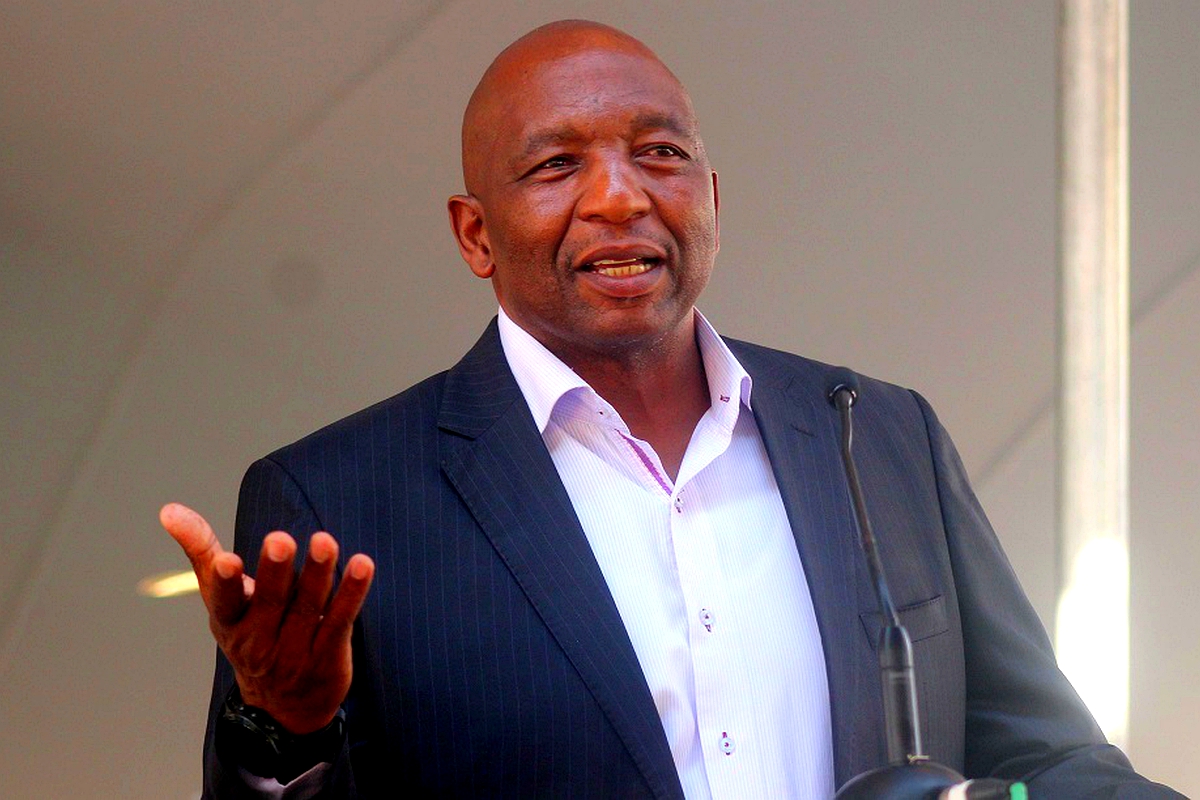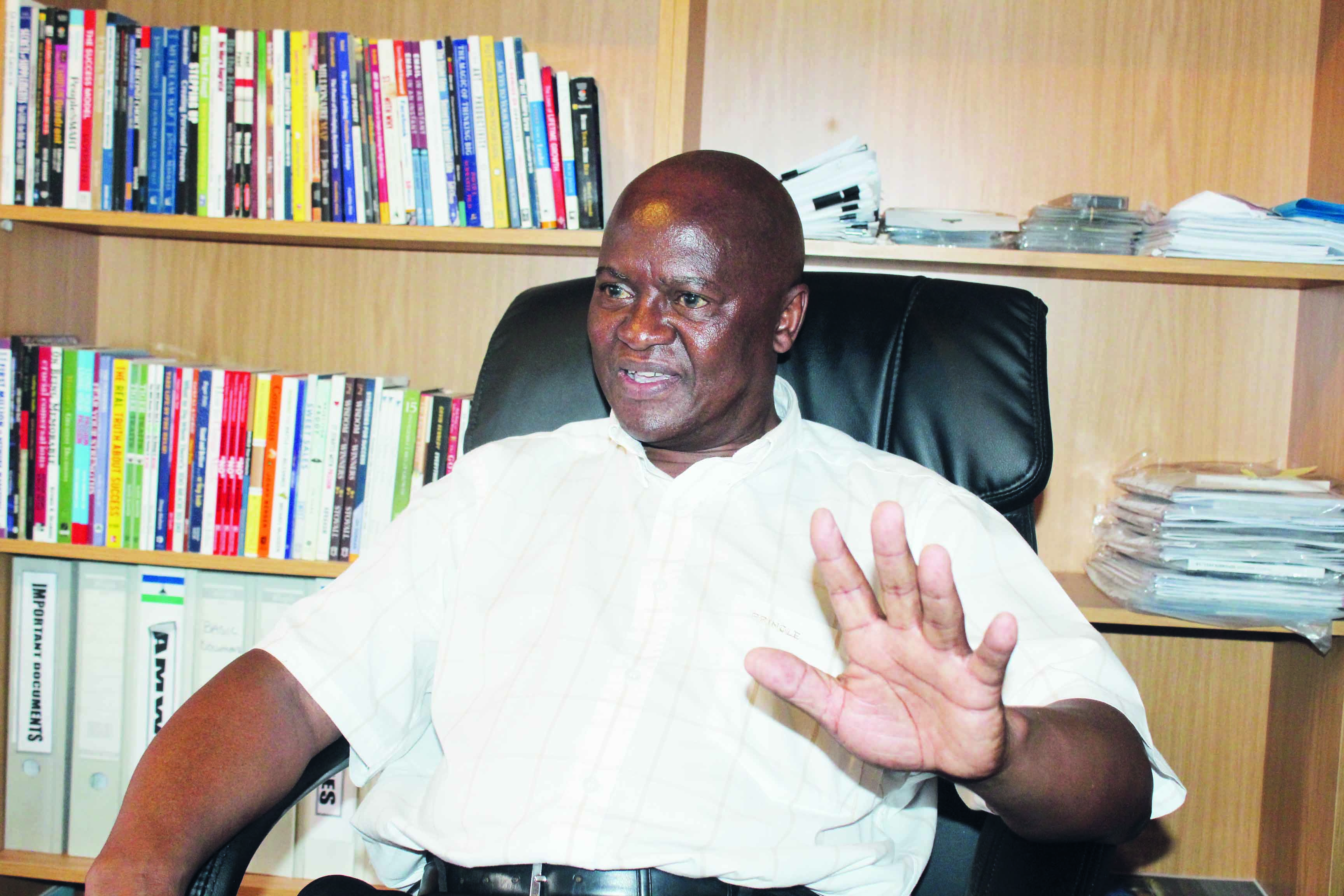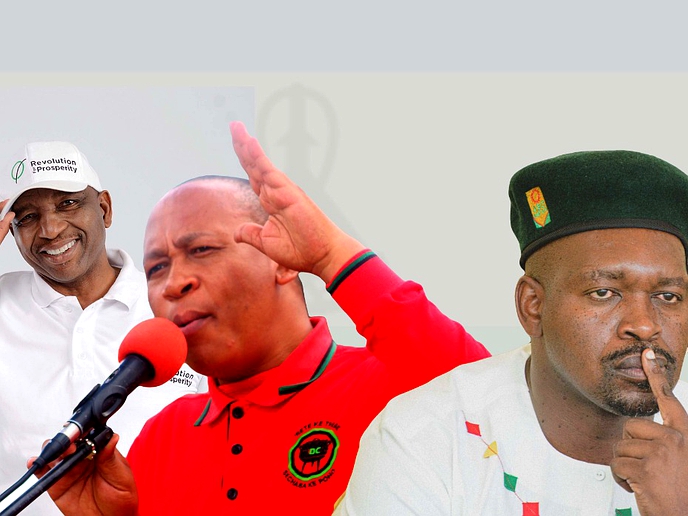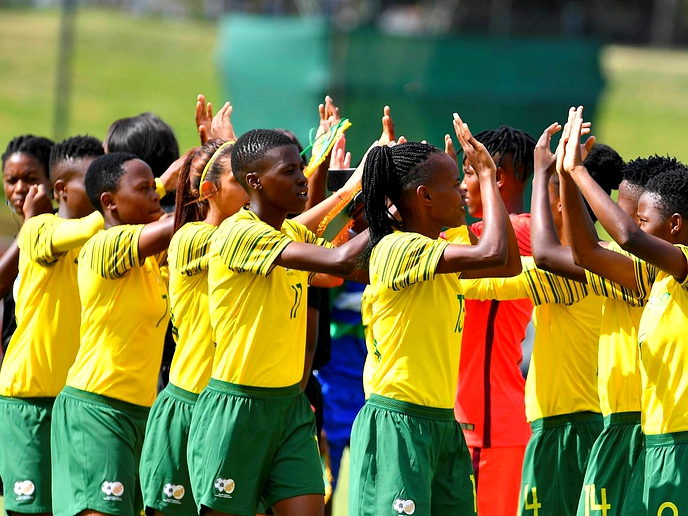Sam Matekane, the Revolution for Prosperity (RFP) leader, has explained how his newly formed party aims to revolutionise governance by aiming for a government system where office bearers in all spheres of government from legislature to executive will be selected and hold offices based on merits.
news
Aug. 14, 2022
STAFF REPORTER
6 min read
Matekane explains candidates’ ‘meritocracy’s’ fiasco

RFP leader Samuel Ntsokoane Matekane
Matekane explained his party’s controversial idea of meritocracy while on a campaign rally at Mechachane constituency in Butha-Buthe on August 13.
According to Matekane, for more than 50 years since independence, there has been no progress and the sorry state of Lesotho prompted the business community to reach a conclusion of taking action in order to change the direction “because we were aware that we are gradually sliding into a failed state. We thought it would be irresponsible of us as business people to ignore the situation while we are part of this society.
“We therefore put brains together and resolved that enough is enough! Our country must change towards the better and become economically prosperous,” he said.
He reasoned: “We only asked you to nominate and recommend four possible candidates whom you would like to be your constituency representatives. We did not ask you to gauge them against one another as to determine who should be number one or number four.”
He said as RFP they believed the people had already identified quality people in those four nominees. The four were then subjected to an intensive process of interview to establish their meritocracy qualifications in their respective constituencies, from which one was selected to represent a constituency while the three would be given assignments in the new system of governance where decentralisation and service delivery at the local level would be key.
“It does not mean the selected one is better than the rest. It is a matter of where we need what skills. It is not because we undermine other nominees who equally possess important qualities, nor are we neglecting the peoples’ choices. The services that we are promising you should be implemented, monitored and evaluated. I must stress that going to parliament cannot be the only service one can offer their community,” he said.
He argued that the role of a Member of Parliament (MP) is to make laws, allocate public funds and monitor their usage.
“And if the MP comes back after five years how is he/she going to serve your daily needs? As RFP we are saying while one of the candidates is clued in parliament, the rest are in the governance system to coordinate between the communities, the MP and the
government.”
Matekane said all the four nominees were people of different high qualities that were needed. He appealed to the nominees who were not selected to be the preferred candidates to represent their constituencies in parliament to discard the idea that they had been rejected. He said those who had the misunderstanding of the nomination process must come back.
“We need you,” he said.
Enjoy our daily newsletter from today
Access exclusive newsletters, along with previews of new media releases.

Tlohang Sekhamane, one of the founders of RFP and leader of the party’s public education
As a matter of tradition, selection of nominees for constituency candidacy has been practiced by a few party members at the constituency level who select their most popular favourite to become their preferred candidate. The criteria that the people use appear different and still unknown as to what actually motivates their selection.
While a long-appreciated system is praised as democratic, its critics argue that it has not produced a parliament of competent law makers and a calibre of representatives who can hold the executive to account and efficiently oversee allocation and use of public funds.
The meritocracy approach has stirred controversy in political circles with his opponents accusing the RFP of already portraying a sign of dictatorship tendencies, while his allies hailed the move as a breath of fresh air into the desolate governance system since the country’s independence in 1966, especially for young people with skills and new ideas who aspire to hold governance positions.
His allies claim meritocracy comes in as a counter to cadre deployment.
Cadre deployment is the appointment by a government’s governing party of a loyalist to an institution, as a means of enhancing public reporting-lines and ensuring that the institution stays true to the mandate of the party as elected by the voters.
However, Matekane’s allies say that the introduction of meritocracy in candidates’ nomination was just but a precursor to the anticipated revolution the RFP is about to usher into the political and economic management of Lesotho’s affairs.
They argue that meritocracy will be the party’s DNA governance system opposed to cadre deployment system that has been subject to manipulation and misused by leaders to reserve government positions for unqualified party loyalists and to justify nepotism.
Matekane encouraged to show how he did it
Tlohang Sekhamane, one of the founders of RFP and leader of the party’s public education, has touted Matekane as a man who can lead by example due to his experience, successes in business and high recognition by the international community.
“He is not into politics to ask for a salary but to bring service delivery and share his
successes with the rest of us,” he said.
Sekhamane was speaking at the party’s rally in Butha-Buthe on August 14.
He said there was a need for a new way of doing things such as introducing new policies, new systems and new behaviour.
He said the nomination of RFP candidates based on merit was just one of them.
He said in order for Matekane to achieve the desired service delivery, he had to introduce a revolution which might not be easily accepted despite the fact that the old ways the country had been practicing did not yield good results for the progress of the nation.
“Let him show us the way. He is willing to take this country out of poverty and drive
us towards wealth creation,” he said.
At the same rally, Matekane promised that if elected in to power, his party will uplift small, medium to large businesses through, among others, establishment of a development bank, and to ensure that they are always part of wooing of direct foreign investments so that they can eventually own foreign-owned businesses.
In return, he said, the business people must create employment.
“We are business persons. We have only come here (into politics) to respond to the appalling challenges that our people and our country are facing.”
He promised to establish mobile clinics that would attend to the old aged and those living with disabilities at their homes.
He promised to help the youth establish projects in their communities that would have to be supported by the government. He said he acknowledged the fact that Basotho lived mainly on livestock and that their livestock needed to be taken care of as a matter of priority against stock theft.
In order to do so, he said, the RFP led government would introduce a secret chip that would be installed in the skin of the animal – at 20 percent of one’s livestock.
That chip would not only alert the stock theft police when theft takes place but would also alert relevant members of the family and an emergency helicopter pilot so that the crime could be aborted on time.
He promised that farmers would be assisted to improve their wool and mohair production and they (farmers) would be free to sell their produce wherever they get better deals without any interference by the government.
Matekane promised to open a logistics corridor (Trans-Maloti Highway) where road transport from South Africa travelling between places such as Johannesburg, Durban, Cape Town and Port Elizabeth, would have to drive straight through Lesotho rather than taking longer route which they are currently taking to reach their destinations. He said that would also have a byproduct of Lesotho building an international airport in the mountain areas including refurbishment of Moshoeshoe I International airport, in order to facilitate among others easy export of Lesotho products such as agricultural produce to the international markets.
Tailored for you




